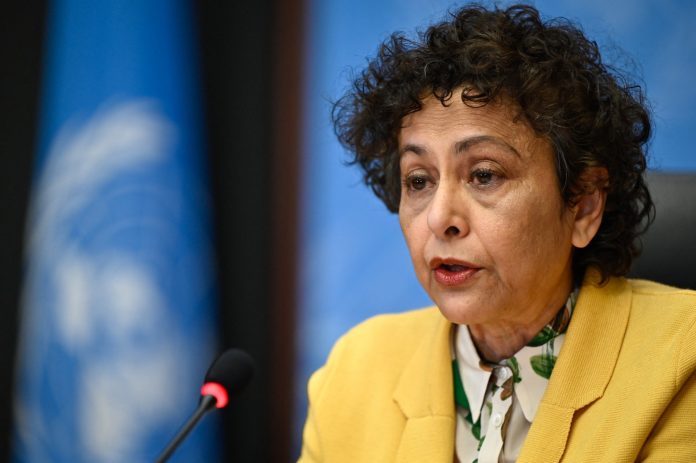United Nations-appointed expert Irene Khan has called for universal and meaningful connectivity to uphold the fundamental right to information for all.
“The Internet is not equally available or accessible to all and that is deepening existing inequalities and creating new inequities along lines of gender, geography, ethnicity, income, and digital literacy, increasing the vulnerabilities of those most marginalized in society,” said Khan.
Last week, the United Nations Special Rapporteur on freedom of opinion and expression called upon nations to intensify their “efforts to close the digital divide and remove all barriers” to the right to information.
“The right to information is ‘the oxygen’ without which neither democracy nor development can flourish,” she said.
Access to information, whether online or offline, empowers individuals to make informed decisions and participate in the democratic process, according to Khan.
She said it also enhances the quality and sustainability of development outcomes by enabling citizens, civil society, and the media to hold governments and companies accountable.
While many countries have enacted laws to protect access to information and some recognize access to the internet as a legal right, the enforcement of these laws is often ineffective.
She noted that various tactics are employed “to restrict or deny access to information,” especially to investigative journalists, human rights defenders, and other civil society actors.
Khan’s report revealed alarming trends. Over the past five years, governments in more than 74 countries have shut down or slowed down the internet, or blocked mobile communications for intermittent or prolonged periods.
These actions have not only hindered access to information but have also disrupted essential services in areas such as health and education.
The UN expert emphasized that access to information, freedom of expression, and active participation of youth, civil society, and independent media are vital to address global challenges like climate change and pandemics, as well as to combat deeply entrenched patterns of discrimination, exclusion, and violence.
Universal and affordable access to the internet and access to information are explicit targets of the Sustainable Development Goals.
Khan called upon all nations to translate their recent commitments made at the High-Level Summit on Sustainable Development into concrete actions to ensure that the right to
Special Rapporteurs are appointed by the UN Human Rights Council to monitor specific thematic issues or country situations. They are not UN staff and are not paid for their work.









